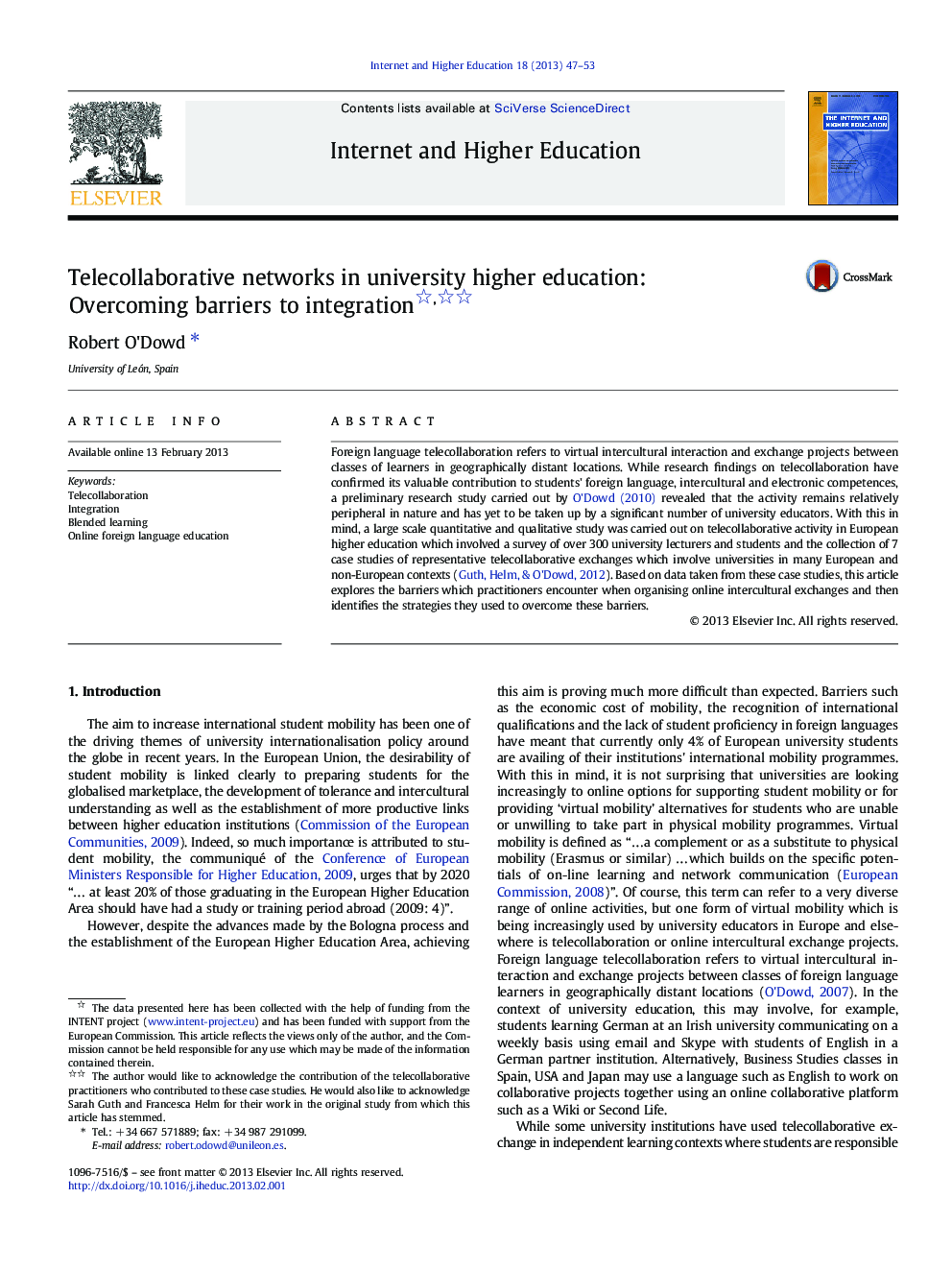| Article ID | Journal | Published Year | Pages | File Type |
|---|---|---|---|---|
| 357834 | The Internet and Higher Education | 2013 | 7 Pages |
Foreign language telecollaboration refers to virtual intercultural interaction and exchange projects between classes of learners in geographically distant locations. While research findings on telecollaboration have confirmed its valuable contribution to students' foreign language, intercultural and electronic competences, a preliminary research study carried out by O'Dowd (2010) revealed that the activity remains relatively peripheral in nature and has yet to be taken up by a significant number of university educators. With this in mind, a large scale quantitative and qualitative study was carried out on telecollaborative activity in European higher education which involved a survey of over 300 university lecturers and students and the collection of 7 case studies of representative telecollaborative exchanges which involve universities in many European and non-European contexts (Guth, Helm, & O'Dowd, 2012). Based on data taken from these case studies, this article explores the barriers which practitioners encounter when organising online intercultural exchanges and then identifies the strategies they used to overcome these barriers.
